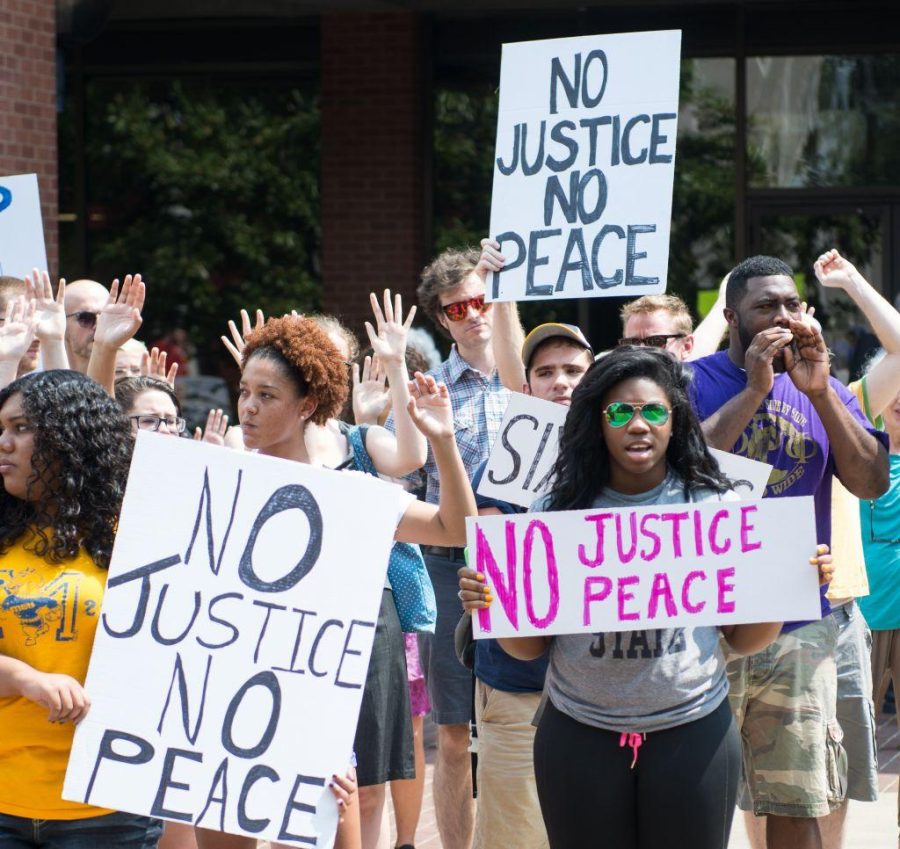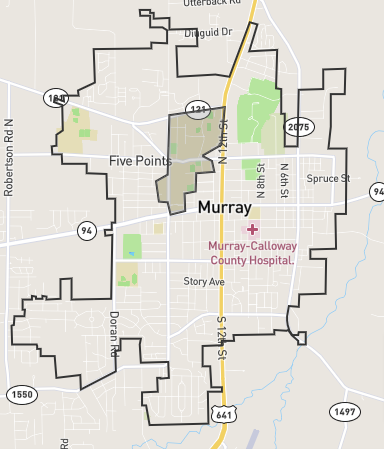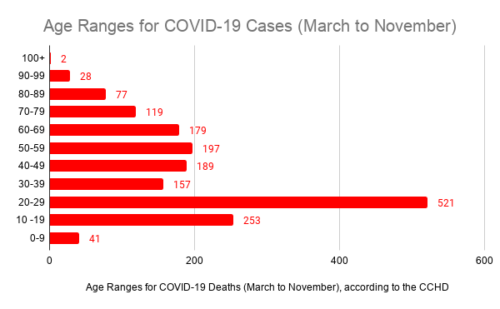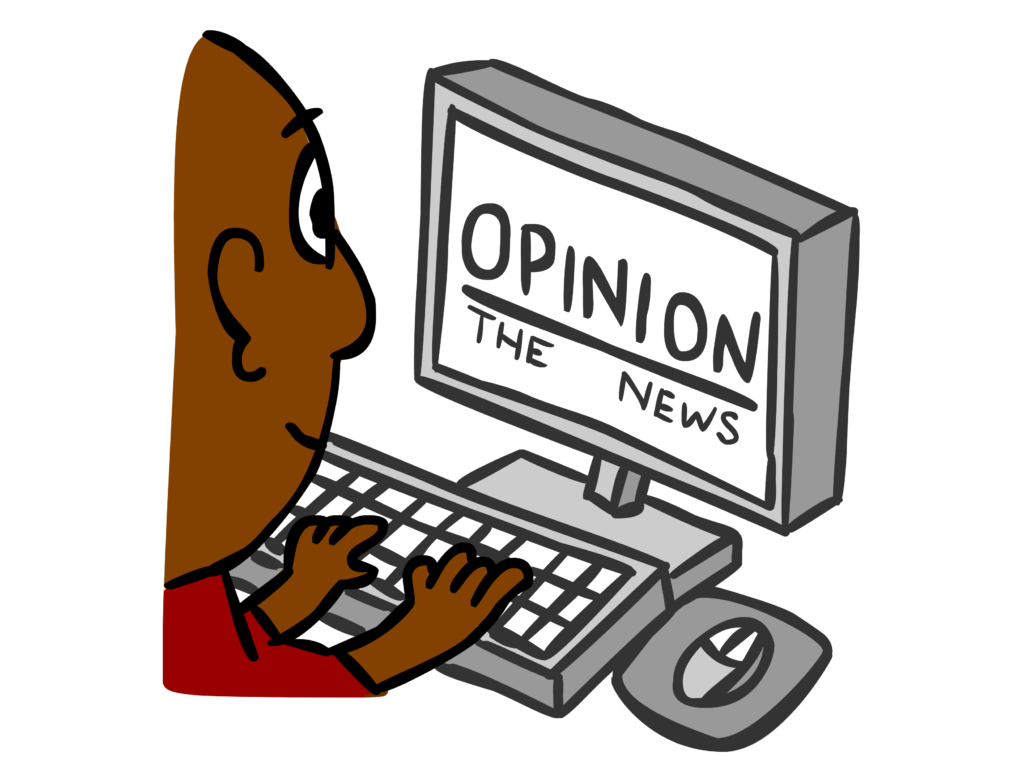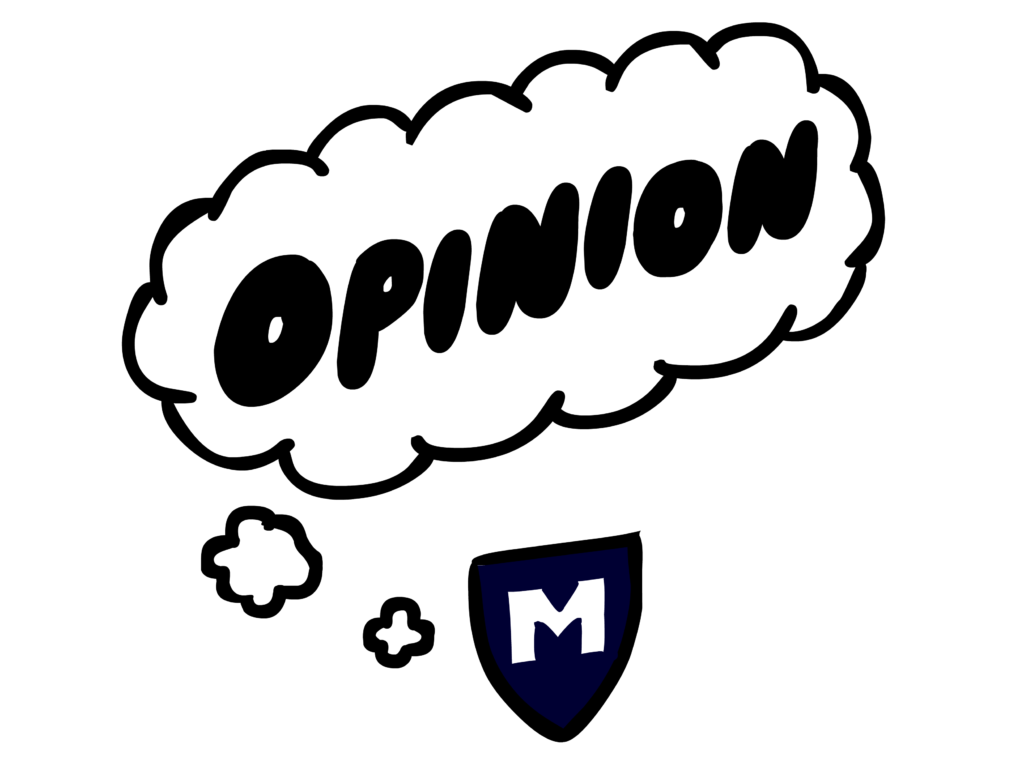While comments posted on a social messaging site in response to a protest last week have angered many on campus, students and faculty say the latest controversy could amplify the conversation about tolerance.
Yik Yak, a social messaging app much like Twitter, allows for completely anonymous posting by users. The app uses GPS to localize posts on mobile devices so only users from a particular area can see comments from that region. On Aug. 28, some people around Murray State’s campus used Yik Yak to make anonymous comments, or “Yaks,” about the students, faculty and staff who staged a protest in the wake of the shooting of Michael Brown in Ferguson, Mo.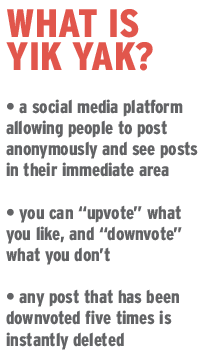
The posts included comments such as, “Rush KKK! Get the word out!” and “50 likes and I’ll start a white power protest.”
Brian Clardy, assistant professor of history, participated in the Ferguson protest. Clardy had not heard of the Yik Yak posts about the protest, but after he read them he said he had nothing but pity for the commenters.
“We need to make people aware of the fact that this is the 21st century, not the 19th,” he said.
For Clardy, the “Yaks” show a need for an ongoing dialogue about tolerance, inclusion and diversity. He believes the people that posted the prejudicial comments do not represent the University as a whole.
“They’ll see they’re wrong, they’re on the wrong side of history,” he said.
Alexis Riley, junior from Owensboro, Ky., also participated in the protest. Riley said she had never heard of Yik Yak before The News posted screenshots of “Yak” posts on Facebook. The post about target shooting in front of the library hit Riley the hardest, but she said she thought they all were absolutely disgusting.
“It’s awful to know that people I go to school with have the nerve to say that, but not really any nerve all because it’s completely anonymous,” she said.
Because of that anonymity, Riley knows the University can do little about the posts, and it’s possible not all the comments came from students. But Riley said she is glad the posts are getting attention because change can happen only if people know the issues.
“Being silent is not the answer to anything; that’s why we had the protest,” she said.
Riley said she wanted the people that posted the comments to know they haven’t dampened the cause for justice. She said it doesn’t matter if the posts were supposed to be funny or not because they were rooted in racism.
Dana Howard, social media marketing manager of University Communications, said the relatively new app Yik Yak is simply not monitored.
She said her office keeps up with Facebook and Twitter and other trafficked sites, but she did not realize Yik Yak was popular on Murray State’s campus.
“There’s more and more anonymous apps that are coming out,” Howard said. “We’re constantly keeping up with what the next thing is.”
Last year Howard dealt with a similar situation when the Twitter accounts @MSUAsians and @MSUBlackPeople gained notoriety for offensive tweets. Because the Twitter handles used “MSU,” University officials had the accounts shut down for copyright infringement. Yik Yak, though, does not use accounts or require users to sign up with personal information to track comments.
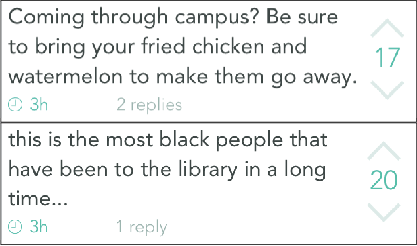
Anonymous posts related to Thursday’s on-campus protest of events in Ferguson, Mo., are on Yik Yak.
Howard said the more threatening posts have been reported to Public Safety and Emergency Management, including, “yo if someone threw a sticky grenade in the middle of them, we could do away with half of the blacks.”
Howard said threats on campus through social media are rare, and she thinks it’s just “keyboard courage” spurring these people to make the comments.
In an email to The News, Jay Morgan, provost and vice president of Academic Affairs, said he forwarded the screenshots of the Yik Yak posts to the University attorney, director of Equal Opportunity and the University Chief of Police for investigation.
A Yik Yak spokesman didn’t comment on the specific posts about the protest but said the company can shut out – but not trace – abusive commenter.
“The app monitors conversations and posts, and any negative or harmful behavior can result in the respective user being blocked, or altogether banned from future use,” the spokesman said. “In addition, the app relies on community self-policing to ensure that users are posting in positive ways.”
The community self-policing allows Yik Yak users to vote down comments. When a “Yak” receives five down votes, it is removed.
Devan Reed, junior from Mayfield, Ky., said he is disappointed that the anonymity of the app doesn’t allow for finding out the identity of the users. He said he is not entirely surprised about the comments, but he said he expected more from the community.
“I hope no one takes this lightly,” Reed said. “I hope no one takes this as a joke, because it’s not the least bit funny.”
Don Robertson, vice president of Student Affairs, said he hopes these posts can continue a dialogue about what happened both in Ferguson and at the protest outside Waterfield – and why. He hopes hurtful comments can give way to an educational moment.
“I don’t believe the views expressed are widespread,” Robertson said. “I think it’s just a few individuals.”
Clardy, the history professor, said Murray State has an opportunity to deal with the questions of hateful rhetoric and racial injustice. Clardy said he wants University leadership to use it as a learning moment about tolerance and respect.
“They’re talking about their fellow human beings,” Clardy said of the Yaks. “They’re talking about their fellow Racers.”
Story by Kate Russell, Staff writer



























































































